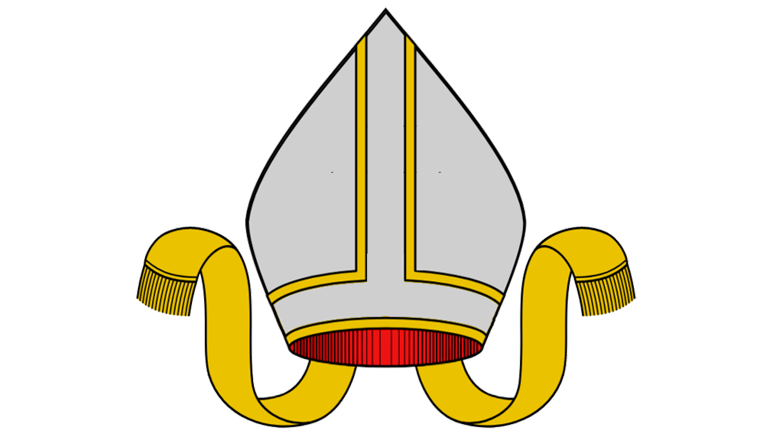The Church of England has begun disciplinary action against clergy featured in the Makin Review in abuse committed by the late John Smyth QC. Janet Eastham, the acting religious and social affairs editor at The Daily Telegraph, reports that four priests have had their licences and/or PTOs (Permission to Officiate) suspended, presumably pending internal investigation and possible proceedings under the Clergy Discipline Measure.
They are:
- The Revd Hugh Palmer (Diocese of London)
The report says he knew of John Smyth’s abuse, as he visited victims in hospital.
- The Revd Sue Colman (Dioceses of Winchester and London)
The report says that she and her husband, Sir Jamie Colman, funded John Smyth’s youth camps in southern Africa from 1989.
- The Revd Rico Tice (Diocese of London)
The report says he knew of John Smyth’s abuse 30 years before it was made public
- The Revd Nick Stott (Diocese of Gloucester)
He was a trustee of Zambesi Trust UK, which financially supported John Smyth while he was in southern Africa. He told the Makin Review that “it was not his place to go investigating rumours”.
So, there appears to be immediate progress in responding to the Makin Review.
BUT – why is action only being taken against priests? What about the bishops criticised in the Makin Review? And while we’re at it, what about bishops who have failed to act appropriately in other safeguarding cases?
Bishops, of course, are a protected species. They receive undeclared funding from the Church Commissioners to challenge accusations that they have failed to respond appropriately to safeguarding matters, while the victims and survivors who make the allegations are left out in the cold, isolated, and told to keep quiet – with unlawful threats of being referred to the High Court for contempt if they dare whisper their experience to somebody else.
The Church of England can’t be allowed to let the Makin Review fall from memory.
The abuse by John Smyth was appalling. And it needed to be dealt with “then”; and it needs to be dealt with “now”. But the Makin Review is just another in a long line of “lessons learned reviews” commissioned by the Church of England into their continuing failings.
And the Church of England STILL refuses to get it right. Why are bishops exempt from disciplinary action faced by clergy? Yes, the Archbishop has announced that he will resign – but he is going by choice.
When will the Archbishop of York Stephen Cottrell and the Archbishops’ Council’s secretary general, William Nye, be given their marching orders for their roles in the Church of England’s safeguarding disaster?
NOW is the time, once and for all, for the Church of England to lose its control over safeguarding, so that an independent body can pursue truth and justice – and in doing so, not treat bishops as a special category of people that must be protected at all costs.
I leave the last word to the Prophet Jeremiah (and it is worth reading the whole of Jeremiah Chapter 8):
Since my people are crushed, I am crushed;
I mourn, and horror grips me.
Is there no balm in Gilead?
Is there no physician there?
Why then is there no healing
for the wound of my people?
Jeremiah, Chapter 8
New International Version

Justin Welby did the honourable thing. Stephen Cottrell said he had taken the “institutional” blame and no more bishops needed to resign. What utter nonsense!In my mind, there is no point in a bad apple filling the gap, even for a short period of time. I agree the question needs to be answered, when will Cottrell step down?
When the Archbishops’ Council summarily closed down the Independent Safeguarding Board without notice, it failed to set up protective measures, advance counselling, or advance warning to the survivor/victims who had bravely opened their raw wounds to the ISB and were consequently left in limbo and distress. It was a safeguarding fiasco, haemorrhaging the tenuous trust they had started to have in the professionals as they opened up to the re-traumatisation so often involved in sharing your violations with others. That alone should have led to resignations.
However, the survivors then had to handle the trauma of fearing their notes and disclosures might now be handled by the very organisation that had wounded them. They also had no idea when any care (and further trauma) might happen. According to information I trust and believe, in the immediate aftermath they were told provisions for their care would be put in place ‘within weeks if not days’. 16 months later I am told they are still in limbo. If true, that compounds the safeguarding disgrace of the original shutting down of their cases and the independent professionals they had opened to.
I believe General Synod should be calling for an in-depth enquiry into these profound safeguarding failures, and suspension of all members of the Archbishops’ Council involved in these events – because they themselves have failed to safeguard victim/survivors and have shattered their trust and compounded the abuse done to them by the Church.
These comments are my opinion, right or wrong. How can decent people, injured badly by the Church, have been hung out to dry? Why did not their interests come first? Why weren’t they consulted and forewarned? Why did the General Secretary decline to engage in Independent Mediation with the ISB Board members first, instead closing the Board in such haste? Why could this all not have been brought to Synod, meeting a week or two later, to explain, to set out plans for the immediate pastoral care of the abused, to hear from the ISB members? Why the irresponsible haste and safeguarding fiasco?